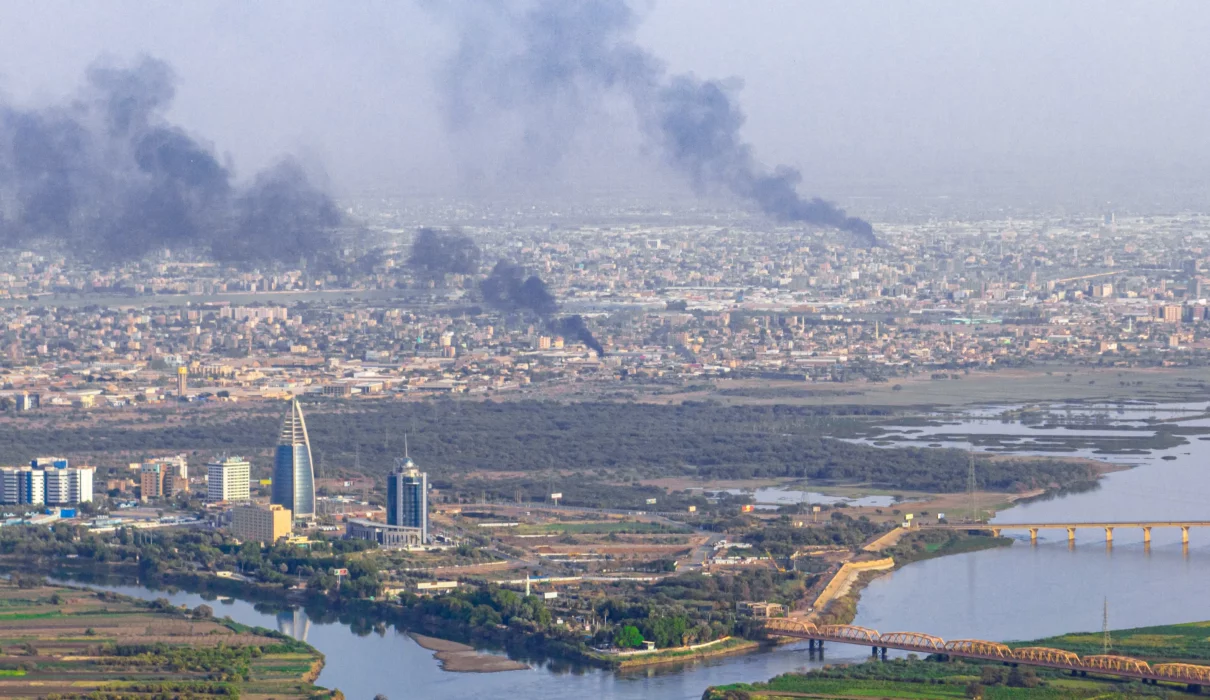While much of the world remains distracted, Sudan is being ravaged by a devastating war—one not born merely from internal divisions, but from a systematic and foreign-backed campaign to dismantle a sovereign state. What is unfolding in Sudan is not just a civil war; it is an international crime in progress, fueled by regional powers and orchestrated through a ruthless proxy militia: the Rapid Support Forces (RSF).
The Root Cause: A Foreign-Backed Power Grab
Contrary to oversimplified headlines framing the conflict as a “power struggle between two generals,” Sudanese officials and analysts argue that the RSF’s rebellion is rooted in a deeper agenda. This war is an attempt to hijack Sudan’s political trajectory by foreign powers, most notably the United Arab Emirates, using the RSF as a proxy force. The militia, originally born from the Janjaweed forces responsible for atrocities in Darfur, was allowed to grow into a state within a state, accumulating wealth, arms, and political leverage.
The fall of President Omar al-Bashir in 2019 left a fragile transitional period vulnerable to manipulation. The RSF, led by Mohamed Hamdan Dagalo (Hemeti), capitalized on this chaos—backed by foreign money, arms, and political cover. Their aim, critics say, has never been national unity or democracy, but domination through terror.
Foreign Involvement: A Web of Support for the RSF
The RSF’s rise was not possible without the strategic involvement of foreign actors. The United Arab Emirates has been accused of providing the RSF with financial resources, weapons, and logistical support. Previously, RSF fighters were deployed to Yemen under the Saudi-led coalition, gaining battlefield experience and further strengthening their military capabilities.
In Libya, the RSF has formed ties with General Khalifa Haftar, receiving arms and coordination. Chad’s involvement, whether through passive complicity or active assistance, has also been questioned. The RSF’s activities go beyond Sudan’s borders—there are credible claims that they were involved in UAE-backed efforts to destabilize Qatar and engage in transnational mercenary operations.
These ties have transformed Sudan’s war into a full-blown proxy conflict. The RSF is not merely rebelling; it is executing a regional agenda that seeks to fragment Sudan, loot its resources, and eliminate the vision of a democratic, civilian-led state.
The Humanitarian Abyss
The cost of this war has been catastrophic. Over 10 million people have been displaced. Cities such as Khartoum, Al Jazira, and vast areas of Darfur lie in ruins. The RSF has been widely accused of committing systematic atrocities—targeting hospitals, power stations, water systems, and civilian neighborhoods with impunity.
Women and girls face horrifying levels of sexual violence. Ethnic cleansing has been reported in Darfur, echoing the genocidal horrors of two decades ago. Aid corridors are routinely blocked or attacked, especially in areas under RSF control, making humanitarian relief nearly impossible. International organizations are overwhelmed, and Sudan’s own infrastructure is too shattered to cope.
International Failure and False Equivalence
The international community, instead of clearly condemning the RSF, has largely adopted a dangerous position of false neutrality. By treating the Sudanese Armed Forces (SAF)—the official military of a sovereign state—and the RSF as equivalent negotiating partners, world powers risk legitimizing a terrorist militia responsible for war crimes.
This was painfully clear during the UK-hosted Sudan conference on April 15, 2025. Sudan’s legitimate government was excluded, while nations accused of fueling the conflict—such as the UAE and Chad—were invited. Many Sudanese viewed it not as a peace summit, but as a “meeting of the perpetrators.”
Such diplomatic decisions undermine peace, empower war criminals, and send a devastating message to the Sudanese people: that their sovereignty, suffering, and sacrifices are negotiable.
Justice, Peace, and the Road Ahead
Despite the despair, Sudanese leaders insist that peace is still possible—but not at the cost of justice or truth. The idea of power-sharing with the RSF is now seen as obsolete. There can be no lasting peace without accountability, and Sudan is calling on international courts to investigate war crimes and support a justice-based resolution.
A genuine peace process must be Sudanese-led, with international support that is principled—not transactional. It must begin by recognizing the RSF as what it is: a paramilitary insurgency backed by foreign states, not a legitimate political actor.
A Message of Resilience
As the world continues to look away, the Sudanese people endure. They resist occupation, rebuild communities, and document crimes with courage and clarity. The Sudanese ambassador, in his address to the diaspora, called for unity and determination, urging the international community to stop rewarding violence and instead support Sudan’s pursuit of freedom and statehood.
What Sudan is facing is more than a war—it is an existential fight for identity, justice, and survival. The question now is not whether the world will act, but whether it will act before it is too late.


